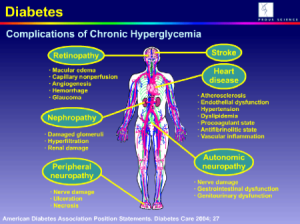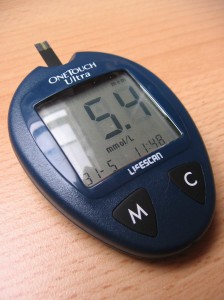This article contains affiliate links. If you make a purchase after clicking on a link I may earn a small commission at no extra cost to you.
Hypoglycemia & allergies
Hypoglycemia mimics many conditions and can produce a catalog of symptoms almost as complete as the one for allergy-induced disorders.
The word ‘hypoglycemia’ simply means low blood sugar’.
Glucose circulating in the bloodstream is a vital metabolic nutrient: all organs combust it with oxygen to release energy for life processes.
The brain is especially susceptible to a lack of it, and the consequences if it falls too low can be as serious as a lack of oxygen.
Insulin, which lowers blood glucose, was formerly given in high doses as a drug to induce convulsions in psychiatric patients, so you can see the direct relationship between brain function and glucose levels.

Because of the multiple symptomatology of hypoglycaemia it becomes difficult to differentiate from allergy predisposition — in fact, sometimes impossible. It can easily be misdiagnosed as an environmental allergy or very possibly a food allergy.
Furthermore, both conditions may exist side by side in the same patient. Luckily the confusion is not often serious, because the elimination diet also works well as a corrective to hypoglycaemia; nevertheless, it will not cure it entirely, so it may be important for you to recognize this condition if you suffer from it.
SYMPTOMS ATTRIBUTABLE TO HYPOGLYCEMIA
Almost any symptom can result from neurological impairment due to hypoglycemia, though some are more common than others. Here is a list:
- Sweating Premenstrual tension
- Abnormal hunger Weakness
- Rapid heartbeat Inner trembling Tremors
- Frequent nightmares Suicidal thoughts
- Headache or migraine Double vision
- Cold sweats Incoherent speech
- Fatigue Outbursts of temper
- Exhaustion Extreme depression
- Addictions Drowsiness
- Alcoholism Restlessness
- Antisocial behaviour Negativism Pain in joints
- Personality changes Anxiety
- Lack of co-ordination Mania
- Emotional instability Irritability
- Delinquency Leg cramps
- Nervous breakdown Phobias
- Mental confusion Blurred vision
- Light-headedness Faintness
- Insomnia Panic attacks
- Poor academic performance
As always, it is necessary to state that hypoglycemia is not the only cause of these symptoms. As you can see, the number of possibilities is very large, especially since most patients have several of the above in combination. There are several disorders also which may be caused by hypoglycemia, and it is the job of a good physician to ensure that it is properly excluded as a cause in his or her routine screening tests. Among these are included schizophrenia, epilepsy, depression, migraine and asthma.
In addition to the above table there are certain other characteristic signs which point the way to hypoglycemia.
The most significant of these are a sudden attack of tiredness and hunger about mid-morning and a profound fatigue or even faintness coming on late in the afternoon. Both are rapidly relieved by eating, especially by eating something sweet. You will recognise the former as the ‘eleven o’clock gap’ promoted by chocolate bar manufacturers. The ‘run down’ feeling is due to a lack of blood sugar, so naturally any sort of candy or sweet food will relieve it immediately.
The advertisers play heavily on this theme, but, as you will read below, their products are in fact responsible for causing the attack in the first place. (What could be better for profits than to have a nation hooked on sweet food, making itself ill and then only feeling better by consuming more of your product?) Further clues to look for are waking hungry in the night, the need to eat frequently, sometimes a panic — almost a desperation — to get food, irritability and a lack of concentration helped by eating carbohydrate foods and craving for sweet things.
A good clinician can usually diagnose hypoglycemia from an inspection of the patient’s diet. If it shows repeated eating of sugary foods, white flour, drinks with sweeteners, chocolates, sweets and perhaps alcohol, the presence of this is very probable. This sort of eating shows an addictive craving for sugar; but even if that were not the case, the over consumption of such foods would very rapidly cause a disorder of the sugar metabolism leading eventually to hypoglycemia.
